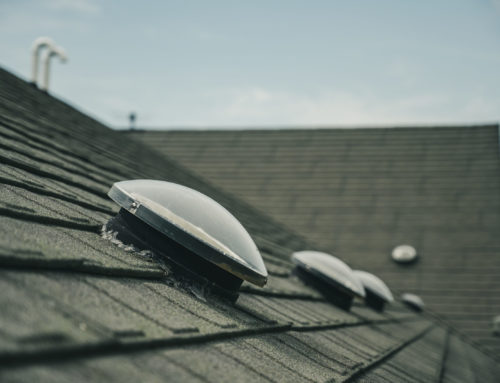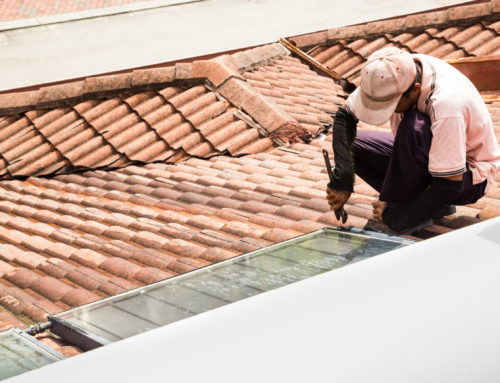Adding solar power to your RV, boat, or another home away from home is a great way to protect your house batteries from death by over-draining.

After using these systems for a while, they will pay for themselves and just keep producing. Portable solar panels allow you to take a solar generator anywhere, which means a renewable power output that travels with you. While portable solar power is a developing technology, there are plenty of solar cell options and tons of solar power systems for the energy-conscious roamer. Charging efficiency has increased to the point where a solar battery pack can power tons of other electronic devices. You can even activate an RV battery using a portable solar generator, then optimize its power with a solar generator.
Below are several solar energy options for your traveling rig, including solar panel kits designed for RV use. Depending on your travel goals and the conditions under which your solar needs to produce, any of these RV solar power systems could keep your home powered up.
With that in mind, here’s a look at some of the best portable solar panels.
Renogy 200-Watt Solar Panel Kit
The Renogy 200-Watt Solar Panel Kit is a great start for a 400 watt RV rooftop solar panel system.

This kit includes two 100 watt, 12 volt portable solar panels for RVs, a 30 amp controller, a 20 ft adaptor kit, cable, connectors, and two sets of Z-brackets.
Depending on your rig, these panels will easily fit on your roof and can be protected from extreme vibration thanks to z-brackets. Also, the junction box with this kit offers protection against low-pressure water jets. Because roof mounted panels are constantly faced with the elements, this portable solar power kit has been designed to stay in place in light rain. The panels are framed in corrosion-resistant aluminum, making them a great choice for water applications.
As always, remember your energy needs when hooking up to solar power, including whether you’d like to connect an additional device. Electronic devices are compatible with some portable power station models (via USB port). But of course, the more you use, the quicker the battery bank will drain. Measure how much wattage you need from a portable solar charger before installation.
Go Power 120-Watt Portable Solar Kit
The Go Power! GP-PSK-120 offers those with small rigs or limited boat space a great option for keeping house batteries powered up. The panels fold for easy storage and come with folding legs to maximize solar efficiency.
These framed solar panels come with a 10 amp solar charge controller, easy to install external battery clamps, multiple solar plug adapters, 12 feet of cable for easy relocation, and a nylon storage case. If you need to fold up and go to the next campsite, this is a great solar kit for your rig.
This kit weighs in at just over 33 pounds. While Go Power! does offer kits for marine applications, this kit is a better fit for those traveling over land.
Grape Solar 200-Watt Polycrystalline Solar Kit
This RV solar kit is designed to provide plenty of power and can easily be expanded with up to 3 more 100 watt panels. These panels are built to be mounted rather than moved to collect the most sun possible.

Once mounted, the Grape Solar kit offers limited cable to connect the panels, the controller, and the batteries. While this kit may be a terrific tool for anyone looking to start with a basic solar system, it won’t serve the small RV traveler who doesn’t have the ability or the space to mount the panels for off-grid power.
Note that the installation instructions linked at the Grape Solar website offer even the most inexperienced novice a basic understanding of how to wire up their first solar energy system. If you’re sure you plan to DIY this installation, Grape Solar can help you understand the basics.
Go Power 200-Watt Flexible Solar Panel Kit
The Go Power Solar Flex GP-Flex-200 portable solar panel kit is designed for RVs and boats, and is listed under their Marine Application. This lightweight and flexible monocrystalline solar panel can be glued to a variety of surfaces.
Remember, a flexible panel is not infinitely bendable. It can be damaged by being bent more than 30 degrees. It’s also important to note that if you plan to use these as part of a portable system, it’s a good idea to mount them to a stabilizing surface. First of all, a stable base will protect them from wind damage or loss. Secondly, if you have them affixed to something a bit heavier, you’ll be less inclined to lift them with one hand and bend them beyond a safe arc or curve.
Choose whether to put this monocrystalline panel to work as a portable system for your RV. You can easily create your own foldable solar panel set-up with lighter-weight products than the traditional aluminum framing. Of course, you may have to stake your off-grid power source in this instance; the wind easily picks up a flat surface, and if your panels turn into kites, cables and connectors may be damaged before you can catch everything. Make sure your own folding solar panel is stable enough to take a few hits.
Eco-Worthy 100-Watt Bendable Solar Panel Kit
Eco-Worthy has become wary of bendable products. Instead, it offers semi-flexible monocrystalline PV panels for those dealing with curved surfaces or users in need of lightweight panels.

This solar power supplier offers various flexible and foldable solar panel components, but it’s important to note that anyone using these products needs a solid knowledge base. Combining panels in series is better explained by Grape Solar demonstration videos than the Eco-Worthy site.
That being said, once you have a solid knowledge base of solar power (and/or a little help), you can put together a basic solar system very quickly with the wide variety of products available from Eco-Worthy. You’ll find power storage options from lead acid batteries you can maintain to sealed deep cycle batteries.
A Word About Safety
Using portable RV solar panels as a solar battery charger is difficult. Even the most skilled electrician can be shocked and may injure themselves or ruin their new solar equipment.
Components in these systems can be dangerous. For example, batteries contain acid and will outgas over time. If battery cells are allowed to run dry, you may burn up your lead acid batteries and be forced into an expense you weren’t prepared to handle. Solar panels also aren’t required to power every type of solar product, such as solar path lights (which work on their own to provide lighting to your yard at night).
Keep An Eye On Your Power Goals And Panel Weight
A light, flexible solar panel can become a kite in a strong wind.

Should your panels take flight, your new solar panel charger system may be reduced to a plastic wreck. When buying portable solar panels for RV use, prioritize strength and installation. An RV solar panel should hold up and keep you on the road.
Also, if you’re planning to start small and expand your system, be aware that you may need to purchase a new solar charge controller at some point. The power coming from your panels is DC or direct current. Anything that plugs in with a two or three-pronged standard household plug requires an alternating current to function properly. An undersized charge controller may provide more resistance as your system expands.
Final Thoughts
A small solar power system for your RV or boat is relatively inexpensive and quite simple to put together. With the right manufacturer, it’s also easy to expand so you can cover more of your power needs or have enough left for rainy days. Rather than struggling with the noise and disruption of a generator, you could hang out under the sun and watch your batteries charge up!


